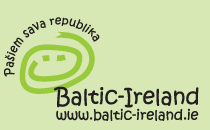Immigrants send €1.5bn euros back home



 Foreign workers send more of earnings to homeland than previously thought. Immigrants sent back more than €1.5 billion to eastern Europe last year, three times more than in 2006, writes Sarah O’Sullivan. The Central Statistics Office had estimated that about €570m was repatriated last year but figures obtained from eastern European banks show the real figure is far higher.
Foreign workers send more of earnings to homeland than previously thought. Immigrants sent back more than €1.5 billion to eastern Europe last year, three times more than in 2006, writes Sarah O’Sullivan. The Central Statistics Office had estimated that about €570m was repatriated last year but figures obtained from eastern European banks show the real figure is far higher.
Many immigrants are spending only a small proportion of their earnings in Ireland, instead using their wages to support families at home.
The Polish community sent home €1.3 billion through banking channels last year. But this does not cover the total amount remitted because not all money transfers are officially recorded. Western Union, a money transfer company, will not divulge the sums it handles.
The Bank of Lithuania said immigrants in Ireland had remitted €136m last year. Some €28m has been sent to Lithuanian bank accounts so far this year. The Latvian community sent home €84m in 2007, and a further €39m so far this year.
Ronnie O’Toole, chief economist with National Irish Bank, was surprised at the figures and warned that large sums leaving the country will have an impact on the Irish economy. “The numbers are far higher than I would have expected. Billions earned but not spent here would have a significant effect on our economy. It has the knock-on effect of reducing spending here,” he said.
 Typical of those sending money to eastern Europe is Liana Goldstrema, who moved to Ireland in 2001. Goldstrema “bought” her job as a cleaner in Dublin from an agent in Riga, the Latvian capital, for about ¤180. She only discovered that Irish work permits were free when she arrived in Dublin.
Typical of those sending money to eastern Europe is Liana Goldstrema, who moved to Ireland in 2001. Goldstrema “bought” her job as a cleaner in Dublin from an agent in Riga, the Latvian capital, for about ¤180. She only discovered that Irish work permits were free when she arrived in Dublin.
Goldstrema sends €75 a week home to support her 66-year-old mother, paying her medical expenses and taking out a bank loan here to buy her a car. “I don’t want my mother to go to a city and ask people for money. This is what many old people are forced to do,” she said.
Her mother comes to Ireland twice a year to shop for clothes and boots, Goldstrema said, because “these things are very expensive now in my country”. The inflation rate in Latvia is around 12%. Goldstrema said she would love to return home, but could not sustain herself and her mother on local wages. The minimum wage in Latvia is about €200 per month compared to €350 a week here.
Alvils Reinbergs arrived here seven years ago and now sends home about ¤300 a month to his grown-up children in Latvia. Although the 48-year-old biology graduate is unemployed, he has no intention of returning home. Reinbergs said many migrants are “in despair looking for a job at the moment” but do not plan to leave because “the country is in a mess”.
John Beggs, an economist with Allied Irish Bank, does not believe that the flow of economic migrants into Ireland will stop any time soon.
Neither does he think the money sent home is damaging the local economy.
“We are talking about a sum of money that is equivalent to about 1% of GDP. It doesn’t really feature in terms of loss of income to the Irish economy. It’s certainly not a drain,” he said.
Beggs added that immigrants had served the country well when their labour was needed to bolster numbers.
From
August 17, 2008
reklāma: reklama@baltic-ireland.ie
redakcija: info@baltic-ireland.ie







